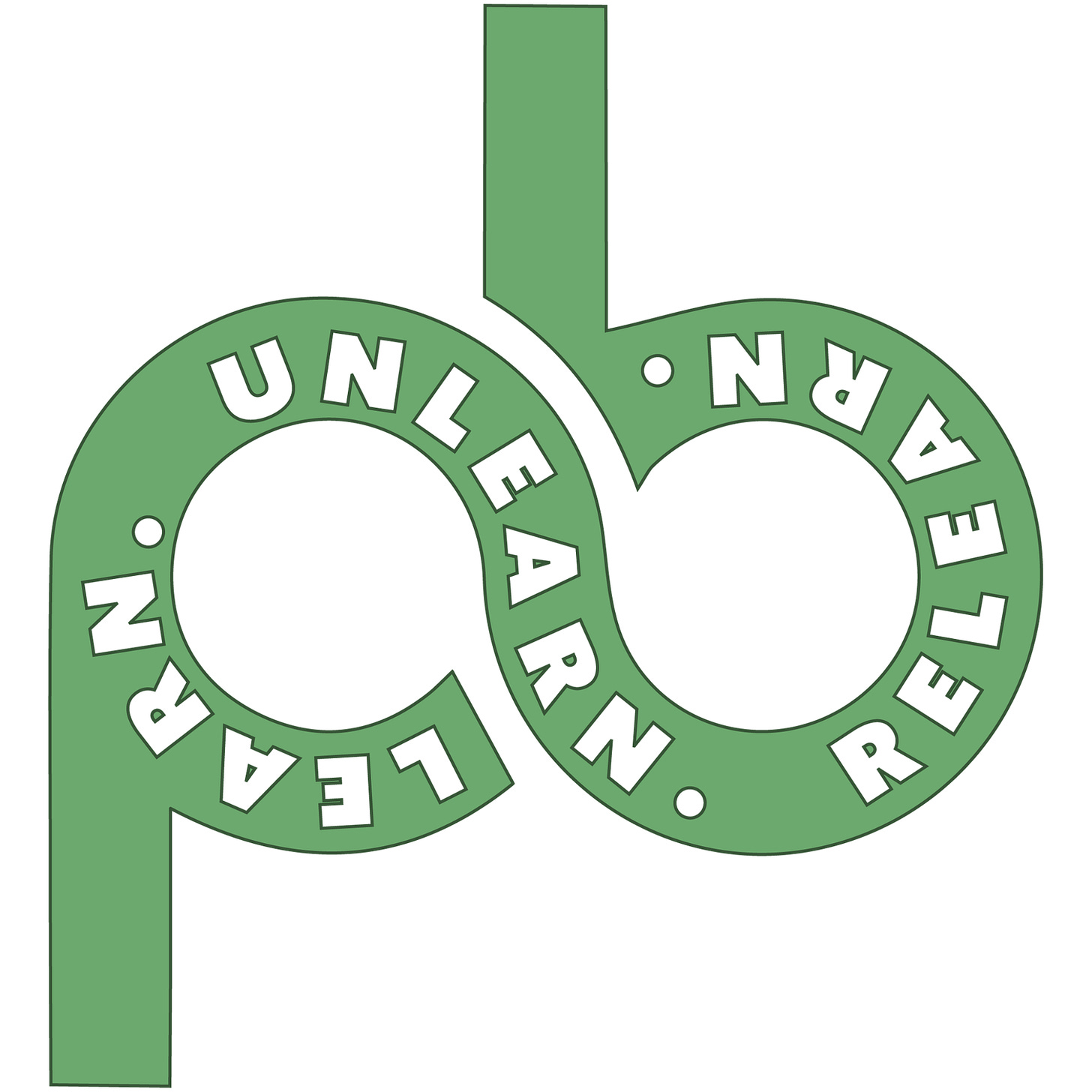Welcome to Polymathic Being, a place to explore counterintuitive insights across multiple domains. These essays take common topics and investigate them from different perspectives and disciplines to come up with unique insights and solutions.
Today's topic is motivated by an engagement with a subscriber on Substack chat. (which you all can join via the link at the end) It highlighted that some people view the idea of a Polymath more like a mythical creature than the real and very ordinary humans they are. Today we’ll address that idea and invite everyone to join in breaking down the barriers of silos of expertise and bring the Polymathic mindset everywhere.
In a recent Polymathic Being Chat
asked, in response to my own question about which topics readers would like to hear more about:“Do you interact with other polymaths on a regular basis? If so, I would love to hear about that. It must be fun. 🤩”
That got me thinking a bit about a few threads woven into her comment. The first is kind of an assumption that a Polymath is a mythical creature that doesn’t interact with ‘normal’ people regularly. The second might be a bit more of my impression but it almost sounds like she doesn’t see herself as being able to be a Polymath. I’d like to address both today because the entire goal of Polymathic Being is to help grow our community of counterintuitive thinkers.
Mythical Polymath
It took me a long time to realize what kind of a thinker I was. I certainly didn’t work within the same boundaries that many people did and it was both a boon and a bane. The worst part is I had no model to help articulate why I seemed to be all over the place.
Then I heard the term Polymath from the book The Polymath: Unlocking the Power of Human Versatility. The book is great but it introduces us to the intimidating examples of Davinci, Al-Khwarizmi (where we get the term algorithm), Hypatia, and Benjamin Franklin. These are legends and seem out of touch for us mere mortals.
Yet I couldn’t avoid the fact that I was thinking in the same ways and often coming up with some pretty crazy innovations in my own right. Were these some mythical creatures to whom my aspiration was like Iracrus and I was out of my league?
To hear the naysayers on social media, I certainly am. One of the most common retorts I get in an online debate (yes yes, I know I’m wrestling pigs in mud) is that it’s hubristic of me to even claim to be associated with Polymaths.
But I can’t accept that. Just like putting on shoes, grabbing a ball, and shooting hoops allows me to claim the title of a basketball player, the aspiration of Polymath falls in the same category. I’m never going to be a Michael Jordan (though I am also 6’6” and named Michael) and I’m not going to be a Michael Polanyi. (Hungarian Polymath)
And I don’t need to be. I can still be a basketball player and a Polymath and learn valuable life skills along the way. I know I’ve used this term a lot today but I view it as an aspiration, never an end-state. So to that first point, there are mythical players in basketball and mythical Polymaths but that doesn’t mean we all can’t aspire to that mindset.
In fact,
from and I collaborated on an essay that provides practical insights into how anyone can do this:Interacting with Polymaths
So Polymaths aren’t mythical and we can all improve our abilities to be more like them. This leads us to the last comment about how it must be fun to interact with them. I have to chuckle and admit that it’s kind of an adventure…
My friend and collaborator
, and I have had many conversations where it becomes a bit of a joke of how many different topic threads we end up weaving together and have floating around waiting to be woven in. Our chats are certainly not linear or formulaic and there are often dozens of threads we are keeping track of.Even as far back as high school, I remember challenging people to pick any topic to engage in conversation with and then to feel free to switch the topic as hard and different as they wanted as a bit of a challenge for me to pivot and keep up.
Those are probably two of the more random insights into interacting with someone like me. Let’s just say that even if I know nothing, I’ll start asking questions and work to weave together a usable framework to begin learning that new topic as quickly as possible.
That brings up a good point on interacting with Polymaths in general. They aren’t bullshitting you on topics. They just typically have a broad enough exposure to so many different disciplines that it doesn’t take long to bring in insights and ask appropriate questions without deep expertise.
I’m only going to speak for myself here but I also like to use the Polymathic mindset to help bridge others into thinking in similar ways. I view it a bit like a scavenger hunt where we can go find fun tidbits and share. I expect that anyone can engage in divergent and convergent thinking and, hopefully, at the end of a conversation, we have two Polymaths, not just one aspiring one 😊
Call to Action
In summary, a Polymath is not a mythical creature whose status is impossible to attain. It’s a practical mindset of insatiable curiosity, humility, and systems thinking that anyone can apply.
You are all here in this dojo of Polymathc Being and so I consider you all Polymaths wherever you are in the journey. I hope that I’m helping bridge domains and disciplines and providing counterintuitive insights. I also believe that you are all capable of the same.
To that end, my call to action is for all Polymaths to Unite! Engage! Converse! Challenge! Explore! and really embrace that fundamental foundation of Learn, Unlearn, Relearn.
Polymathic being is reader-supported. These essays are all free but your financial support goes a long way to helping keep these open for everyone!
Please join me on Substack chat as well as Notes where I’m working to have these sorts of conversations all the time!
Enjoyed this post? Hit the ❤️ button above or below because it helps more people discover Substacks like this one and that’s a great thing. Also please share here or in your network to help us grow.
Further Reading from Authors I Appreciate
I highly recommend the following Substacks for their great content and complementary explorations of topics that Polymathic Being shares.
- All-around great daily essays
- Insightful Life Tips and Tricks
- Highly useful insights into using AI for writing
- Practical AI
- Integrating AI into education
- Computer Science for Everyone










I used to be skeptical of modern-day polymaths or renaissance individuals, a term that emerged a few years ago to describe people skilled in various fields. For instance, in tech innovation, you might find someone good at business, marketing, technical aspects, communication, and even artistry – an ideal tech startup founder.
This concept re-emerged in Silicon Valley and tech circles in general as a response to the growing criticism of hyper-specialization in all areas: People who often study one subject intensely, and the more they learn, the narrower their worldview becomes. They may become experts knowing almost everything about almost nothing. In the past, figures like Einstein, Newton, Da Vinci, and many ancient thinkers and philosophers had broader but also shallower knowledge since there was less information available.
So, when I first encountered the term "modern Renaissance man," I worried that it meant having shallow knowledge in various fields, becoming a jack-of-all-trades but master of none. As someone with a strong technical background in computer science, I valued my expertise in a narrow area to produce, eg., high-quality research papers that could be published in top scientific venues. So I cringed at the idea of expanding that knowledge domain and necessarily being less knowledgeable in general.
However, after graduating and teaching students, I realized that our narrow focus on technology and computer science left many important aspects unconsidered.
I began exploring philosophical ideas, design thinking, and human-centered design, as well as modern marketing concepts focused on putting people at the core. I also discovered various teaching and communication methods. I realized the importance of versatility in skills, such as communication, design, writing, and team management, without sacrificing a few strong areas where you're exceptional and competitive.
In engineering, to create world-changing products, you need top-level skills. But for these products to genuinely impact people, you must also excel in marketing, sales, design, and business ideation.
So, while I wouldn't label myself a "true polymath" -whatever that means- I do believe in building a T-shaped expertise profile: having a couple of strong areas where you're highly knowledgeable and many broader adjacent areas with greater-than-average knowledge. This allows for incorporating ideas from different fields into your thinking and decision-making.
However, I have concerns with this versatility approach. It's essential to distinguish between passive interest in topics outside our expertise and assuming we can contribute professionally. For instance, I'm fascinated by black holes and astrophysics but wouldn't write a technical article on them. Similarly, I enjoy writing fantasy stories but wouldn't claim to be a fiction writer -I know, I know. When people embrace versatility, it's crucial to delay forming strong opinions without sufficient knowledge or experience.
For example, if you're interested in epidemiology, read and learn as much as you can, but remember that even after a couple years of study, you may not be fully prepared to determine the best course of action during an epidemic, so you must still listen to the experts.
And I've seen this a lot in social media. It's common for people with only a brief exposure to a technical topic to develop strong opinions on what works and what doesn't, and then go about lecturing others on what to do, sometimes with disastrous consequences. The key is to recognize the limits of your knowledge as a polymath or versatile individual. You might have slightly above-average knowledge in many areas, but that doesn't make you an expert.
Experts understand the limitations of their knowledge because they've explored their field to its frontiers. They can evaluate weak points and areas they don't yet understand. Non-experts, however, may struggle to recognize these limitations and can become over-optimistic about their understanding.
When learning about a new field, it's easy to make the mistake of forming strong opinions without having a well-trained epistemic system. So, embrace versatility and strive to be knowledgeable in a wide range of areas – this improves decision-making, communication, and our ability to contribute positively to society. But also remain humble and understand that unless you've spent years delving deep into a specific domain, you're likely missing the whole picture and not fully grasping crucial aspects.
So, yes, conduct your own research, learn as much as you can, but also respect those who've dedicated years to mastering a skill or deepening their knowledge in a specific area. If you haven't invested the time, it's difficult to grasp the full picture until you've experienced it.
I feel and enjoy sharing with other polymaths. However, sometimes, there is a thin border between being curious about so many issues and being a busibody or know-it-all. Humility is a must.